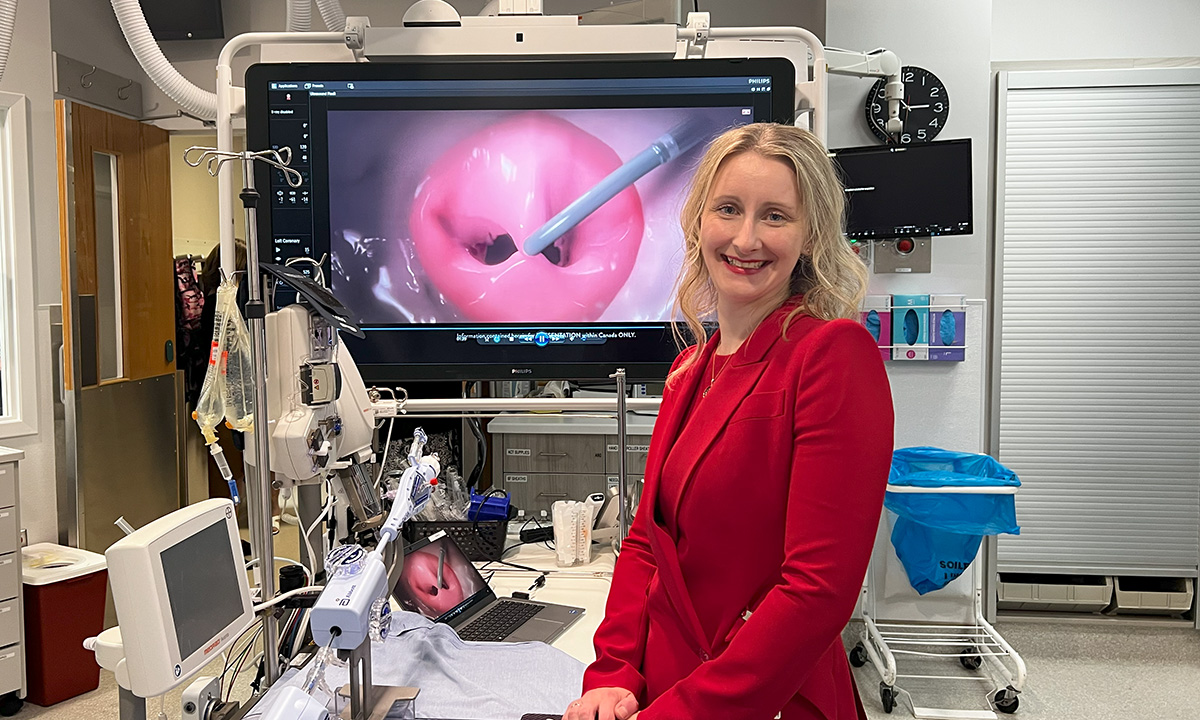
Mitral clip program expands options for heart disease patients
A new initiative in the Division of Cardiology is expanding treatment options for a group of cardiac patients who can’t undergo traditional open-heart surgery.
By Jeanette NeufeldSaskatchewan patients with mitral valve disease can now receive a MitraClip procedure, an innovative non-surgical intervention to stop leaking in the mitral valve. The cardiologist places the clip through a catheter inserted through a vein in the leg.
The procedures both gives patients a faster recovery time and offers a cost-saving, as patients no longer need to travel out of province to receive the procedure.
“There are a lot of patients with mitral valve disease, who due to other illnesses or comorbidities would not be good candidates for traditional open-heart surgery. This allows us to intervene on peoples’ mitral valve disease in a lower risk setting,” said Dr. Jason Orvold, Saskatoon division head of cardiology in the Department of Medicine at the University of Saskatchewan.
Dr. Janine Eckstein, an interventional cardiologist in the Department of Medicine, has performed seven mitral valve repair procedures in Saskatoon since the program was approved in January 2023. Eckstein learned and performed the procedure in Ontario before being recruited back to Saskatchewan.
Prior to the program’s approval, Eckstein travelled with some of her Saskatchewan patients to perform the procedure in Ontario – paying for her own travel and accommodations to ensure patients got the necessary care.
The mitral clip procedure is less invasive than open-heart surgery, requiring only a skin puncture. Recovery time is anywhere from a few hours to overnight, while traditional open-heart surgery requires up to five days in hospital and up to three months recovery time.
Mitral valve disease is the second-most common concern seen by cardiologists, says Orvold. Of those, only some are candidates for the MitraClip procedure.
The new mitral valve repair program has built off the success of the innovative transcatheter aortic valve implantation (TAVI) program, which was launched in 2019 after Eckstein returned to Saskatchewan.
Orvold says their long-term goal for the program is to expand capacity and continue to incorporate new non-surgical valvular interventions as they become available.
